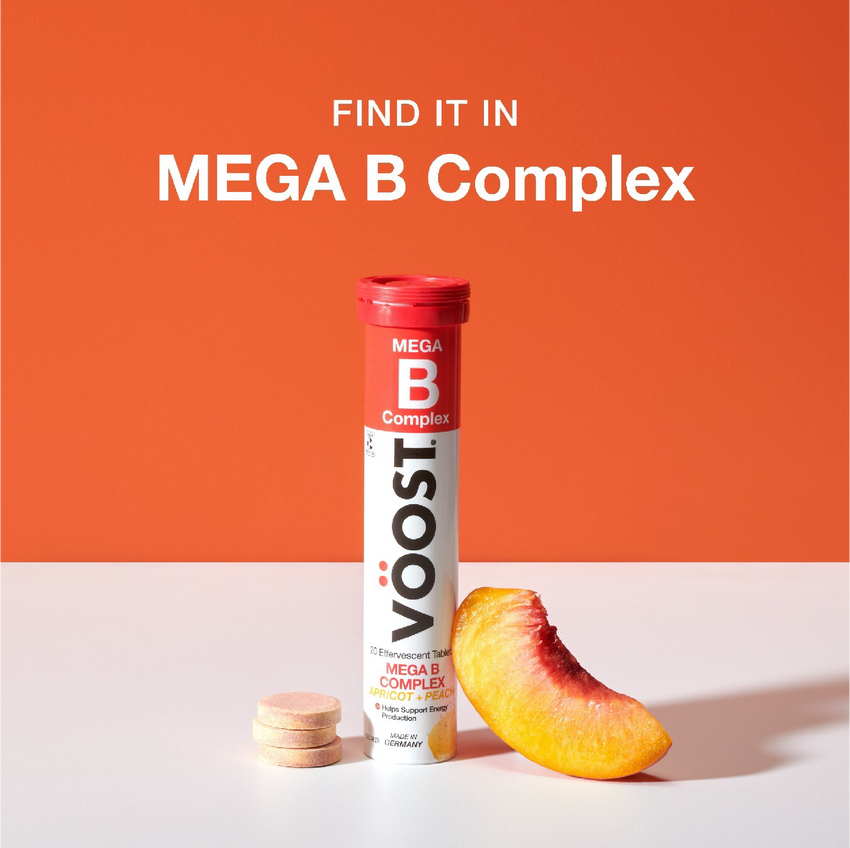We know that the eight B vitamins are renown for helping with energy production, and whilst they all work together in the body, there are some differences between the roles and dietary sources for each. We’ve decided to dive in and answer all your questions about the last, but arguably one of the most important B vitamins – vitamin B12.
Also appearing on product labels as ‘cyanocobalamin’ (cyan-o-co-bala-min), vitamin B12 is is responsible for many bodily functions – including building blood cells and maintaining healthy nerves cells. Being a part of the vitamin B family makes it a water-soluble vitamin, meaning it is carried to the body’s tissues rather than stored in the body.
Read on to learn four essential facts about vitamin B12.
It’s the only micronutrient in the human diet that comes from animal products
That’s right – the only natural food-source of vitamin B12 is animal products – including both red and white meats, fish, and seafood. Eggs and milk also contain some vitamin B12 as well. Therefore, if you’re considering a vegan diet, vitamin B12 is a nutrient that you should be fully aware of. Because vitamin B12 isn’t found naturally in foods such as vegetables, fruits and grains – vegans may risk not obtaining enough of this essential nutrient. In extreme cases, a lack of vitamin B12 could lead to what’s known as macrocytic anaemia.
It helps support healthy cognitive function
Studies have shown that increasing your vitamin B12 levels can increase your cognitive function¹. Vitamin B12 deficiency can induce neurological dysfunction and is also associated with irritability and working memory complications².

It plays a vital role in healthy red blood cell formation
Vitamin B12 is involved in making red blood cells and has a role in the process of cell division. Vitamin B12 deficiency anaemia is a condition that develops when your body cannot produce enough healthy red blood cells due to a lack of B12. Since our bodies cannot create vitamin B12, it’s so important to obtain regularly it from dietary sources.
B12-fortified foods and supplementation can be essential for vegans
We’re big advocates for a food first approach, but other measures may be required for certain individuals following plant-based or vegan diets. Whilst food-sources for vegans are limited, good sources of vitamin B12 can include:
Unsweetened soya drinks fortified with vitamin B12
Some cereals which are fortified with vitamin B12
B12 supplementation prescribed by your health professional
If you’re looking for a great-tasting way to supplement with B12, VÖOST Mega B Complex effervescent tablets are vegan-friendly and contain 50 micrograms of Vitamin B12 per daily dose. Available in a delicious apricot-peach flavour, each tablet can help support cognitive function and assist healthy red blood cell production.
Vitamin supplements should not replace a balanced diet. If symptoms persist, talk to your health professional. Always read the label. Follow the directions for use.
Learn more about Vitamin B12 through the National Health and Medical Research Council.
